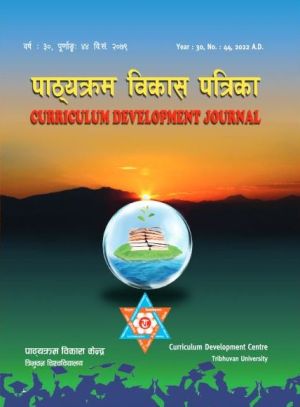A Theoretical Discourse on Quality Education
DOI:
https://doi.org/10.3126/cdj.v30i44.54984Keywords:
quality, equality, discourse, EducationAbstract
The theoretical and empirical dimensions and understandings of quality in education are explored in this study using secondary research techniques based on a literature review and content analysis. It reviews several studies and includes recommendations for top-notch instruction. While the quality of education is a current global problem, Nepal’s education is seen as being of poor quality. In order to guarantee quality education, numerous international conferences have been held. In Nepal, getting a good education is difficult and seen as a piecemeal process. Review shows that there are number of ways to ensure quality education. However, efficiency, effectiveness, equity, relevancy and sustainability are considered the basic measures for a quality education. Similarly, quality environment, quality inputs, quality contents, quality process, quality outputs, quality outcomes, and quality impacts are considered the basic imperatives of quality education. The main methods for achieving quality in diverse sectors include quality assurance, contract compliance, customer-driven, ISO 9000:2000, and self-assessment though the education experts and practitioners perceive quality education as an intangible and elusive notion.
Downloads
Downloads
Published
How to Cite
Issue
Section
License
© Curriculum Development Centre, Tribhuvan University

